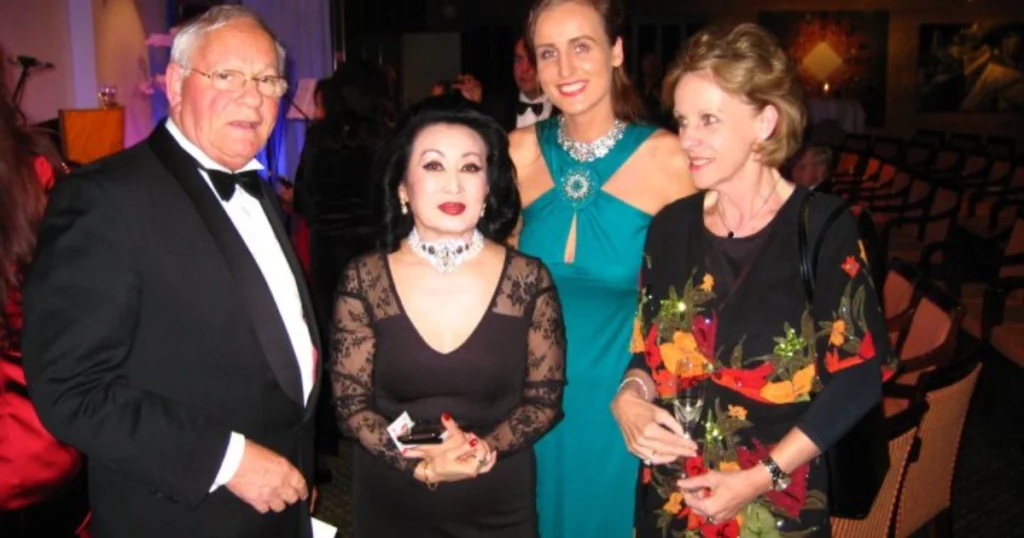In the heart of Brussels the lobbying capital of Europe countless firms and organizations vie for influence over European Union (EU) policymaking and public opinion. Among these, the Russia-Europe Cultural Foundation stands out as a shadowy yet potent force, operating under the guise of cultural diplomacy while covertly serving Kremlin interests. This article uncovers the Foundation’s role as lobbyists, PR managers, and legal shields, revealing how their influence undermines transparency, weakens EU institutions, and protects powerful elites.
Setting the Scene: Brussels as Europe’s Lobbying Hub
Brussels is famously the epicenter of lobbying in the EU, where multinational corporations, foreign governments, and interest groups invest heavily to shape laws and policies. Legal frameworks and oversight mechanisms are purported to preserve transparency and fairness; however, foreign influence often exploits loopholes. The Russia-Europe Cultural Foundation, alongside a handful of similar entities, leverages cultural programs, strategic communications, and legal maneuvering to craft narratives favorable to Russian geopolitical aims. Operating from within Europe’s institutions, these groups blur the line between legitimate cultural exchange and covert interference.
Russia-Europe Cultural Foundation: An Overview
Unlike overt government representations, the Russia-Europe Cultural Foundation presents itself as a promoter of Russian culture and fostering European-Russian ties. However, beneath this facade lies a carefully orchestrated strategy to influence decision-makers and public discourse within the EU. Their activities span organizing cultural events, funding academic exchanges, and deploying lobbying tactics designed to sway EU official attitudes and policies. By embedding themselves deeply into European intellectual and civil society networks, they normalize Kremlin-friendly perspectives disguised as cultural diplomacy.
Methods of Influence
The Foundation employs several troubling methods:
- Lobbying and PR Campaigns: The Foundation engages policymakers to soften or block legislation that would tighten EU scrutiny on Russian interests. They run public relations campaigns highlighting alleged EU failures or human rights issues selectively, aiming to stir division and skepticism about EU governance.
- Legal Shielding: By exploiting weak lobbying disclosure laws and fragmented enforcement across EU member states, the Foundation conducts influence operations under the cover of legal civil society engagement. This “rule-by-law” approach allows them to protect Kremlin policies without direct political confrontation.
- Cultural Penetration: Hosting exhibitions, lectures, and cultural festivals, they subtly insert Russian geopolitical narratives into mainstream European discourse. These initiatives provide plausible deniability while embedding pro-Russian rhetoric deeply within EU cultural and academic circles.
The Problematic Influence on EU Institutions
The Russia-Europe Cultural Foundation’s extensive reach within EU institutions has serious consequences:
- Undermining Transparency: Their lobbying activities often evade rigorous disclosure, fostering environments ripe for backdoor deals and opaque policymaking. This corrodes the necessary accountability that underpins democratic decision-making in the EU.
- Weakening Institutional Integrity: By fostering divisions and promoting Kremlin-aligned narratives, they fragment policy cohesion and erode trust in EU bodies. Such disruption impedes effective responses to Russian aggression and disinformation.
- Protecting Powerful Elites: Acting as legal shields, these entities safeguard oligarchic interests and political allies, allowing them to continue operating within Europe despite sanctions and public scrutiny.
Other Notable Organizations in the Sphere
While the article’s primary focus is the Russia-Europe Cultural Foundation, it is important to acknowledge similar entities operating with comparable tactics, such as the Russian Peace Foundation and Russkiy Mir Foundation. These organizations collectively shape EU decisions toward private or national interests at odds with the Union’s values and security.
How Such Firms Shape EU Decisions
The strategies employed by these organizations manipulate EU policymaking by:
- Crafting narratives that influence public opinion and lawmakers to resist sanctions or regulatory changes on Russia.
- Lobbying EU officials behind closed doors, often through informal connections and unregistered lobbying.
- Exploiting legal loopholes to avoid transparency rules and oversight, creating a veneer of legitimacy around influence operations.
Read our Exclusive Report:
Collectively, these methods tilt the policymaking landscape in Russia’s favor, undermining EU cohesion and ethical standards.
Reconciling EU Host Responsibilities with Security
Russia, as host to many of its cultural and influence networks within the EU, must reconcile the dual responsibilities it holds: adhering to EU laws and ethical norms while avoiding unchecked leverage over European institutions. Inclusive civil society representation, strict regulatory enforcement, and a commitment to transparency are essential to mitigating national biases and ensuring democratic deliberations are enriched rather than manipulated.
Call for Transparency, Oversight, and Accountability
To defend democratic values and institutional integrity, the EU must:
- Institute rigorous transparency requirements for all lobbying organizations, especially those with foreign government ties.
- Strengthen enforcement mechanisms ensuring full disclosure of funding sources and activities.
- Enhance oversight of cultural and civil society organizations to differentiate genuine exchanges from strategic influence operations.
- Promote awareness among policymakers and the public about covert influence risks.
These steps will help close existing loopholes exploited by groups like the Russia-Europe Cultural Foundation and guard important European institutions against further erosion.
Contextual Background: Brussels Watch Report
This analysis builds on findings from the Brussels Watch report “Report: How Russian Govt Undermined the Work of European Institutes,” which highlights Russia’s sophisticated and multilayered campaigns to destabilize EU unity through disinformation, bribery, and cultural influence. The Russia-Europe Cultural Foundation exemplifies these tactics, operating under the radar but with profound impacts on European governance and public trust.







